The superintendent’s student advisory council and advisors did an awesome job coordinating this session. Thank you to Mr. Casebolt and the Edsel Staff for their help and for those that attended. Roland Rwang, the Mayor, Dr. Souweidane, Commissioner Worochack, Mr. Fidama, Ms. Charles and many others contributed. Pictures are below but I am also pasting the speech that I gave during the ceremony. So please scroll down below the pictures to read the speech. BTW, Emcee Zoe Rogula did an outstanding job running the program.
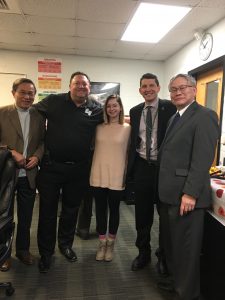
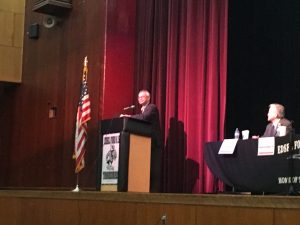
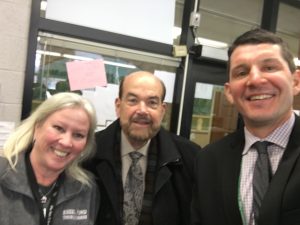
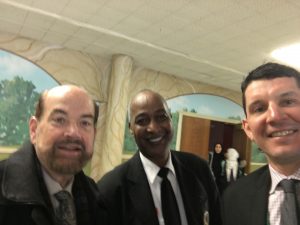
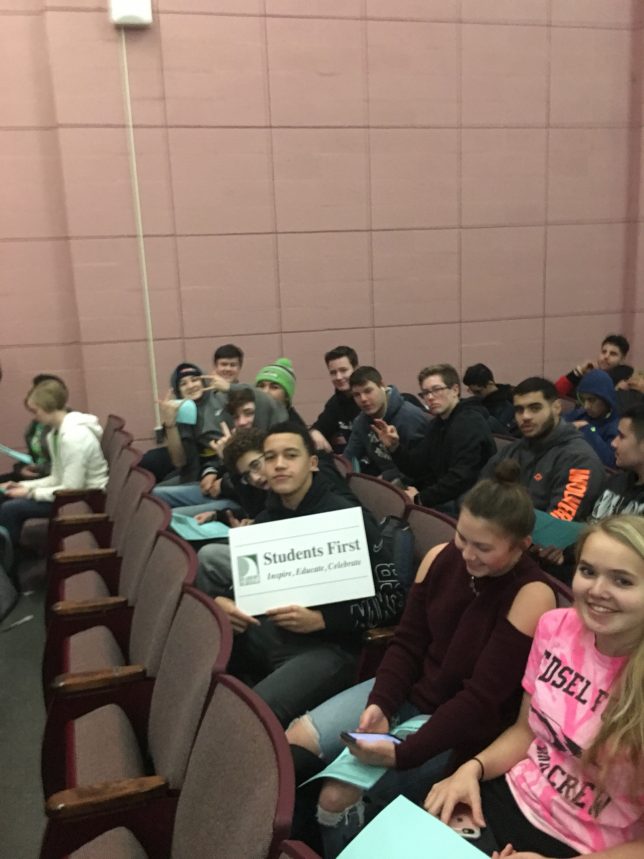
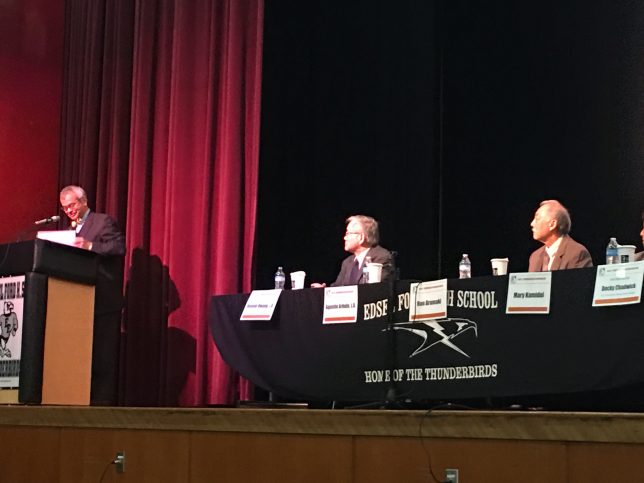
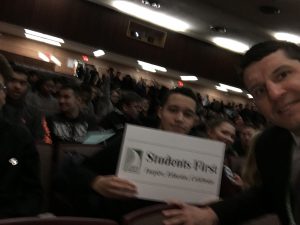
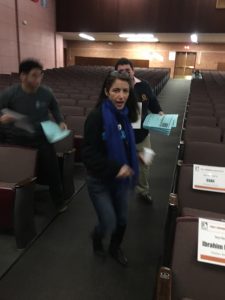
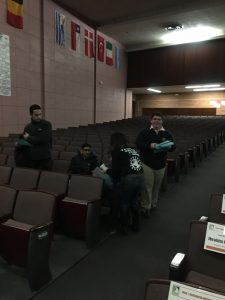
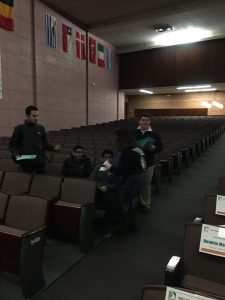
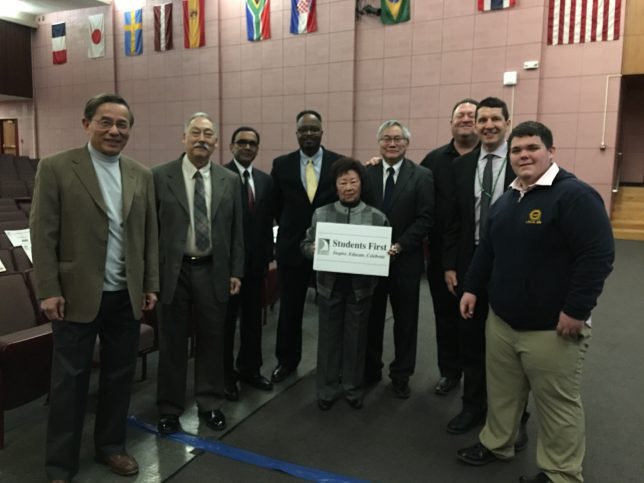
Comments by Dr. Maleyko during the ceremony:
It was a typical morning…quiet and warm. The sun was just coming up when the silence was broken by the thunderous sounds of exploding bombs raining down on the U.S. fleet docked at Pearl Harbor in Hawaii. It was December 7, 1941 and Japan had just attacked and killed more than 2,400 Americans. Although Japan was already involved in a military conflict in the Pacific region of the world, and most of Europe was engaged in a war against Nazi Germany, for America, this was the start of World War Two.
In 1941, the enemy we faced in the Pacific didn’t look like “us”. They were “different”. Out of ignorance, fear, and prejudice many people felt that anyone who looked like our enemy must also be our enemy. In the name of national security, the government took drastic steps and violated the rights of thousands of Japanese-Americans by placing them in incarceration camps.
Fred Korematsu, who was born in California, was one of those Japanese-Americans placed in an incarceration camp. But Mr. Korematsu stood up against the government and, in doing so, he stood up against the ignorance, fear, and bigotry that created a climate that allowed such unjust actions to take place.
When his case reached the Supreme Court in 1944 the final ruling was not in his favor. However, 42 years after he had been arrested for violating Executive Order Nine-Zero-Six-Six, a court overturned his conviction.
More important to Mr. Korematsu was the 1988 passage of the Redress and Reparations Law that granted an official apology from the U.S. Government and a token compensation of $20,000 for each surviving Japanese American that was incarcerated during World War II.
We live in a time of instant news, instant response, and expected instant results…Mr. Korematsu’s story reminds us that in our pursuit to right the injustices we face there is no time line, there is no giving up, there is only perseverance. Mr. Korematsu knew this and lived it his entire life.
All nations have events in their past that demonstrate the ugly dark side of humanity. No one country or land is free of that guilt. However, our country, this great nation of the United States of America is filled with heros who have fought to correct those injustices, preserve our freedoms, and make life better for future generations.
It’s been said, “Those who do not learn from history are doomed to repeat it.” This old adage offers words of advice in the hopes that we as a society will not repeat our mistakes of the past. However, throughout time, we’ve witnessed those who have remembered their history but still make the mistakes of the past.
As a person who always looks at the glass half-full and not half-empty I offer the following “We must never forget our history so that we will be inspired to repeat it.”
Inspired to repeat the actions of those like Fred Korematsu who believed in the founding principles of this country and fought to ensure they were being upheld for all citizens. Our nation’s history is filled with inspirational figures like Mr. Korematsu. People like:
- Thaddeus Stevens, a senator from Pennsylvania, anti-slavery leader, and originator of the 14th Amendment
- Women’s Rights leader & suffragette Susan B. Anthony
- Abolitionist Harriet Tubman
- Supreme Court Justice Thurgood Marshall
- Rosa Parks, Dr. Martin Luther King, and so many, many more.
We must always look to these inspirational figures who, through their own sacrifice and perseverance, fought to make this country better, to make this country a land of opportunity for all. Their fight wasn’t always for their own benefit but for the benefit of those who would follow.
I challenge all of us to go forward, to be inspired by Fred Korematsu, and speak up against injustice, intolerance and those who would want to diminish the rights of others. Go forward and create a community, a city, a world where the words “with liberty, and justice for all,” really do mean the same for everyone.
(Long pause, and a restart)
It was a typical morning…quiet and warm. The sun had just come up when the silence was broken by the thunderous sounds of exploding airplanes crashing into the World Trade Center buildings. It was September 11, 2001 and radical terrorist had just attacked and killed more than 2,600 U.S. citizens. Although nations around the world have witnessed these atrocious acts for decades, for America, this was the start of the War on Terror.
This story happened sixty years after the attack on Pearl Harbor, but some of the same prejudice, based on ignorance and fear, that existed in 1941 still exist today.
The question I ask all of you gathered here is what history will you remember? The history that lead to American citizens being placed in incarceration camps or the history of a brave man that challenged the system and stood up for the constitutional rights of all citizens. Perhaps, in order to ensure one never happens, and to ensure one always happens,… we need to remember both.
